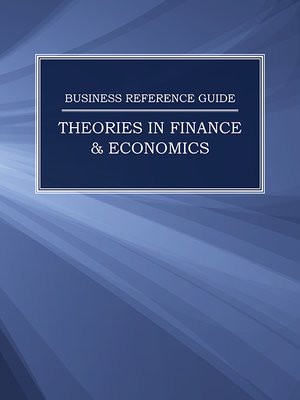
Sign up to save your library
With an OverDrive account, you can save your favorite libraries for at-a-glance information about availability. Find out more about OverDrive accounts.
Find this title in Libby, the library reading app by OverDrive.



Search for a digital library with this title
Title found at these libraries:
| Library Name | Distance |
|---|---|
| Loading... |
The volume opens with an overview of basic concepts in finance, or the study of how resources are valued, allocated,
and invested over time. Business owners, corporate executives, government organizations, and the average person
all benefit from understanding the time value of money, asset valuation, and risk management strategies. Economists
often employ the use of game theory to predict and explain the strategic behavior of producers and consumers in the
marketplace. Game theory can have many economic applications; as Marie Gould explains, there are numerous simple
games that can illuminate how social norms influence behavior. Gould goes on to discuss the concept of contract
theory, which studies how economic players can construct contractual arrangements. Michael P. Auerbach explains
the Black-Scholes Method of Pricing, which was developed to reduce the uncertainty surrounding the potential return
on hedging investments. Simone I. Flynn switches gears to describe managerial economics, or the way in which business
managers apply relevant economic methods to their own decision-making processes. Keynesian economics and
the theory of interest are then addressed in an essay by Auerbach, who aims to elucidate the application of Keynesian
thought in a twenty-first century economic environment. Economic loss can arise from any number of misfortunes,
but various insurances help to distribute the risk of financial loss. Life insurance is just one form of insurance protection
that provides financial assurance from loss associated with life and death. Seth M. Azria discusses the general
theory of life insurance and how it relates to an individual’s finances and the national economy. Francis Duffy moves
on to review the economic philosophy of monetary theory and the major economic causes that shape and determine
the demand for currency.







